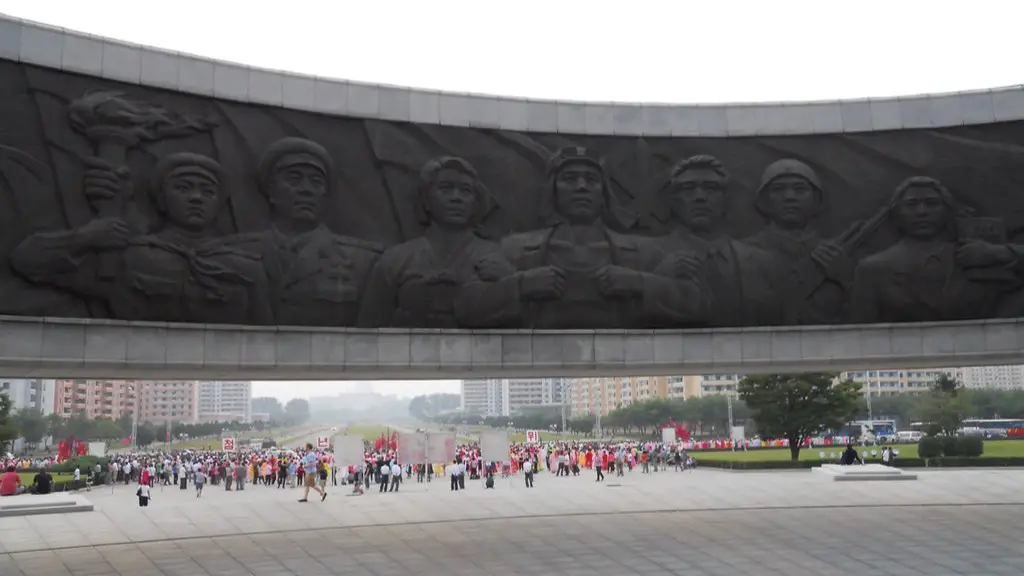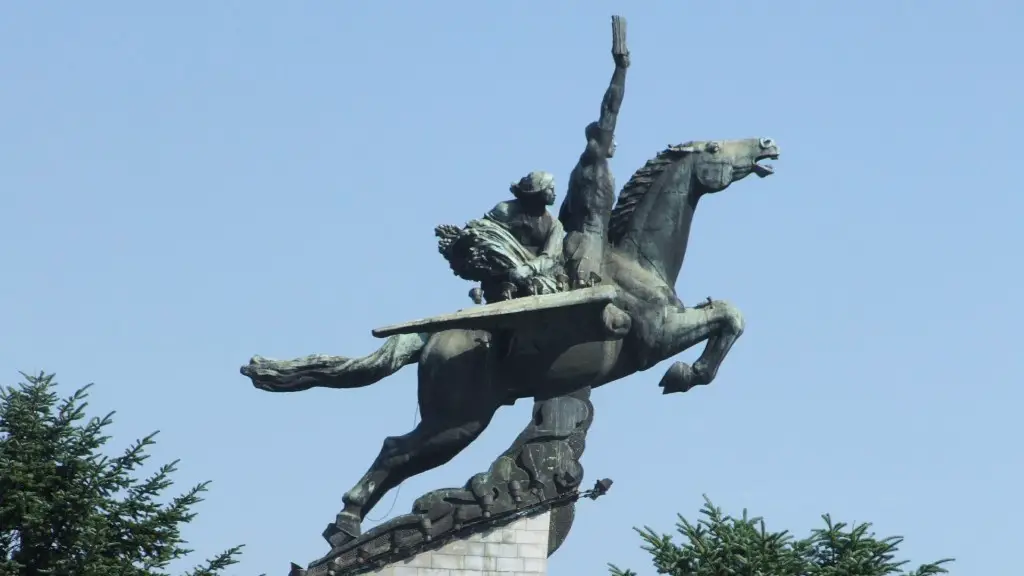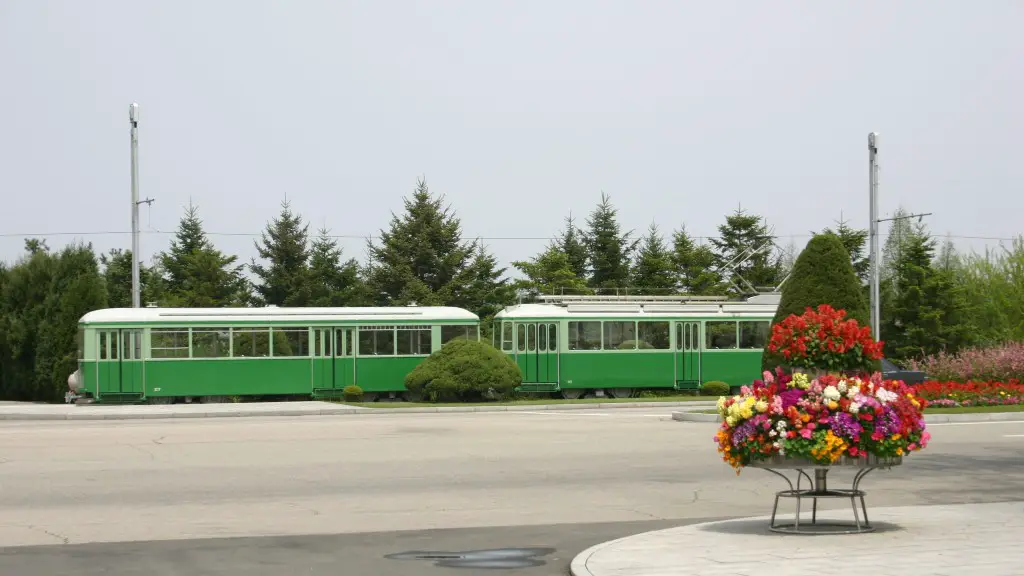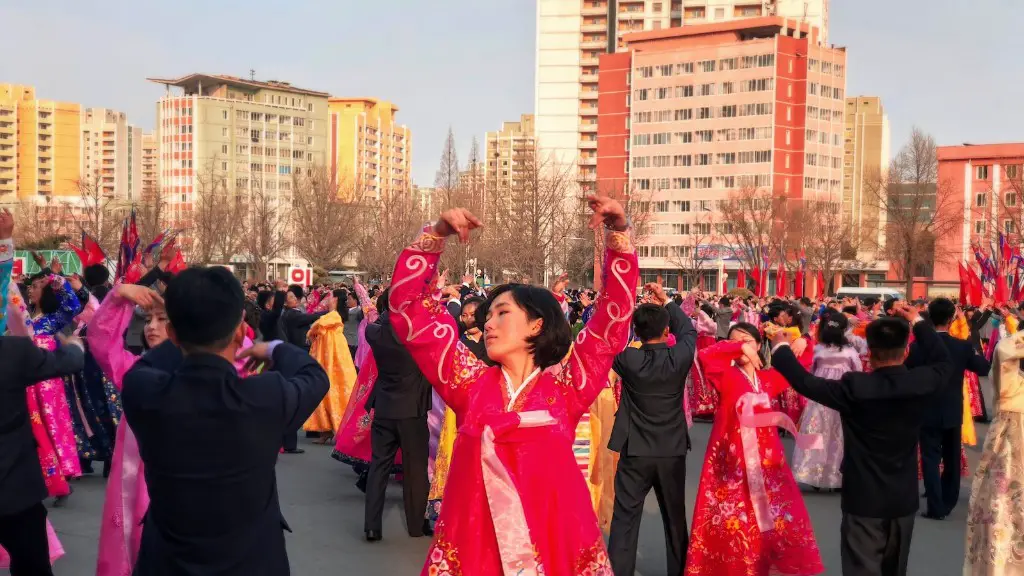North Korea has been shrouded in mystery and fascination since the turn of the century. Although the country is slowly opening up, many people are still not allowed to enter the highly secretive state. If you are wondering why we are not allowed to go to North Korea, this article will explore all the reasons why.
Under its current leader, Kim Jong-un, North Korea is one of the most reclusive and isolated countries in the world. Its famously hostile international relations, with limited foreign relations, and the government’s hostility towards individuals from the international community, mean it is not a desirable or safe destination for tourists.
The North Korean government has extremely strict laws and regulations regarding foreign visitors. All foreign visitors must be accompanied at all times by a North Korean state official and are only allowed to visit specific sites approved by the state. There are also some areas that are strictly off-limits, as they are considered a national security risk.
Moreover, the lack of infrastructure in North Korea means that transportation can be very difficult, and tourists are only allowed to stay in a limited number of locations. Even if they are able to get a visa, there is no guarantee that they will be able to access the country, as all foreign visitors must have a valid travel document issued by the North Korean government.
The economic sanctions placed on North Korea by the United Nations have also had a major impact on how the country is perceived by the international community. These sanctions were introduced in response to North Korea’s nuclear weapons program, and have severely limited the country’s access to international trade and finance. This has further reduced the potential for tourists to visit North Korea.
The harshness of the North Korean regime is also a major reason why people are not allowed to visit the country. North Korea is renowned for its human rights abuses, with reports of prisoners being subjected to torture, abuse, and even execution for political or other “crimes”. These extreme acts of violence by the state have meant that North Korea is one of the least desirable places to visit.
Finally, the lack of transparency in North Korea means it is difficult to be sure of what is really happening inside the country. Questions remain as to whether visitors will be able to access and understand the country, and if they would be safe while there. Even if they do manage to get inside the country, they may not be able to gain a full understanding of North Korean culture and values.
Politics in North Korea
The North Korean government is highly authoritarian and have maintained a single-party state for over 70 years. The political system of North Korea is tightly controlled by the ruling party, and citizens are not allowed to elect their own leader. All political decisions are made by the ruling party, and it is illegal for citizens to express any dissent or criticism.
The North Korean government is also very oppressive and intolerant of any kind of freedom of expression. Citizens are not allowed to have access to digital media or the Internet, and only a few approved foreign news outlets are available. Along with extreme censorship of their own media, the government actively suppresses any criticism or opposition to their policies and tightly controls access to information.
North Korean Economy
The North Korean economy is one of the poorest in the world, and is heavily reliant on aid from countries like China and South Korea. This is due to the economic sanctions that were imposed on the country by the United Nations, which have severely restricted North Korea’s ability to access international trade and finance.
The North Korean economy is also heavily distorted by the state’s focus on military spending. This has resulted in extremely low standards of living for citizens, with limited access to healthcare, education, and basic necessities. Additionally, the economy is characterized by high levels of corruption and mismanagement, resulting in economic insecurity for many.
North Korean Nuclear Program
North Korea’s nuclear weapons program has been a major source of international tension for many years. The country is believed to have a stockpile of nuclear weapons, and its refusal to abandon its program has heightened tensions between North Korea and the international community. The United Nations has condemned North Korea’s nuclear weapons program, and has imposed sanctions on the country in an attempt to dissuade it from further development.
The North Korean government is also believed to be in possession of a large stockpile of biological and chemical weapons, which it may be willing to use if it feels threatened. This, alongside its nuclear weapons program, has raised concerns among neighbouring countries and the international community, making it unlikely that tourists would be allowed to visit the country in the near future.
Cultural Significance of North Korea
Despite the many issues associated with North Korea, it is important to remember that the country still has a rich and unique history and culture. North Korea is home to many beautiful and historic sites, such as the ancient walled city of Kaesong, which is a Unesco World Heritage Site.
The capital, Pyongyang, is also the site of a number of stunning monuments, including the iconic Juche Tower, which is a tribute to North Korea’s founder, Kim Il-sung. These monuments and sites offer a unique insight into North Korean culture and heritage, and are well worth visiting, if one is ever allowed access to the country.
Conclusion
In conclusion, it is important to remember that North Korea is not a desirable destination for most tourists due to the wide variety of issues associated with the country. Its authoritarian government, extreme economic situation, nuclear weapons program, and lack of transparency, mean it is unlikely that tourists will be allowed to visit North Korea any time soon.




